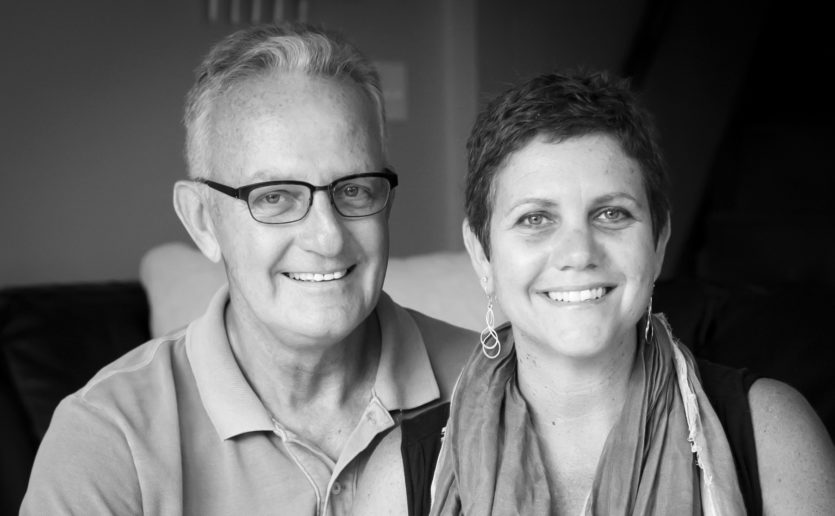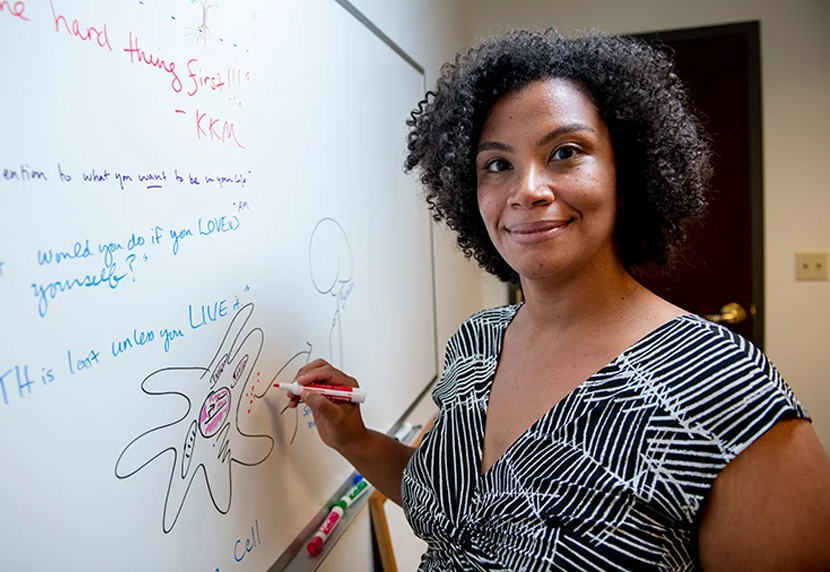In the fall of 2011, one month shy of his 59th birthday, Steve Johanson was diagnosed with early onset Alzheimer’s disease. Faced with “his worst nightmare,” Steve, a construction project manager from Watertown, Massachusetts, and his wife Judy, a family daycare provider, decided to face the disease together. For the next six years, the couple sought advice from doctors, visited museums, took gardening classes and surrounded themselves with family. But by the spring of 2017, things had started to unravel.
More than 16 million Americans are caring for a friend or family member with Alzheimer’s …
“The hallucinations that came with the later stages of the disease caused Steve to react in a defensive manner,” Judy says. While she did her best to make Steve comfortable, she admits his deteriorating condition often left her feeling isolated and overwhelmed. “I didn’t know where to turn.”
More than 16 million Americans are caring for a friend or family member with Alzheimer’s — often at great personal and financial cost to themselves. Studies have shown that dementia caregivers regularly suffer disruptions at work, reductions in household income and savings, and develop health problems of their own. Facing burnout, many look for help from hospitals that are often unequipped to deal with Alzheimer’s patients.
The Dementia Caregiver Support Program (DCSP) was founded by Massachusetts General Hospital’s Division of Palliative Care & Geriatric Medicine to reduce avoidable hospitalizations and improve the quality of life for patients and caregivers alike.
The Hazards of Hospitalization
In October 2017, Judy brought Steve to her local hospital to seek professional medical help. What followed was a nightmare all too common among Alzheimer’s patients. After waiting hours to be seen by a doctor, Steve became fearful and agitated. Hospital staff responded by restraining and sedating him.
“If I had known the trajectory of that day, I would have done something different,” Judy says. Steve never came home. He died four months later in a nursing home.
“Hospitals are not designed with people with cognitive impairment in mind, and there is need for specialized dementia training throughout the healthcare system,” says Susan Rowlett, director of the DCSP. For Alzheimer’s patients like Steve Johanson, the experience can be traumatic, and trigger a rapid decline. It’s also expensive and often avoidable, she says.
A Bridge for Caregivers
Through a combination of individualized counseling, skill training, health and resilience workshops and monthly lectures, the DCSP serves as a sort of bridge — guiding caregivers to the skills, strategies and resources they’ll need to proactively manage situations as the disease progresses. Focus areas include how to better communicate with patients with brain disease, how to manage challenging behaviors, and preventative safety measures.
“Because of the whirlwind nature of this disease, people are less likely to ask for help because they don’t know what kind of help they need,” says Judy Johanson, who now works with Mass General’s Alzheimer’s Disease Research Center and works in collaboration with the DCSP. “To adjust and find hope in hidden places, you need support and guidance from people who have direct experience in this disease. You’re not alone, and you don’t have to do it alone.”
“The first step toward creating a dementia-friendly hospital is treating every case as a patient and a caregiver.”
Looming Alzheimer’s Crisis
Alzheimer’s disease is the sixth leading cause of death in the U.S. It also ranks among the costliest. According to the Alzheimer’s Association, the average cost of care for a dementia patient in the last five years of life is 80% higher than for patients with cancer or heart disease. Alzheimer’s patients are also more likely to visit the emergency room, more likely to be readmitted within 30-days, and more likely to die after hospitalization than people without dementia.
With Alzheimer’s diagnoses expected to more than double by 2050, healthcare workers are looking for new ways to stave off this looming crisis. The DCSP is part of Mass General’s comprehensive approach to dementia care that links specialists in neurology, psychiatry and geriatrics, with primary care providers, to support the patient and caregiver.
“The first step toward creating a dementia-friendly hospital is treating every case as a patient and a caregiver,” Ms. Rowlett says.

Hopes for Philanthropy
The DCSP was launched in 2015 at the urging of Roman DeSanctis, MD, director emeritus of Clinical Cardiology at Mass General. Dr. DeSanctis recognized the importance of providing assistance to caregivers and families after nursing his own wife through late-stage Alzheimer’s. With Dr. DeSanctis’s help, the program secured generous funding from the Jack Satter Foundation.
“We are so fortunate to have partners like Dr. DeSanctis and the Jack Satter Foundation,” says Vicki Jackson, MD, MPH, chief of the Division of Palliative Care and Geriatric Medicine at Mass General. “With their support, proactive interventions like the Dementia Caregivers Support Program can help shift the paradigm of Alzheimer’s care and make a real impact on quality of life for patients and their families.”
The DCSP is available at Mass General, but Ms. Rowlett is hopeful that with additional funding, the caregiver program can expand its offerings, help more families and eventually be adopted across all hospital departments, inpatient services and community health centers.
To learn more about how you can support the Caregivers Support Program, please contact us.



